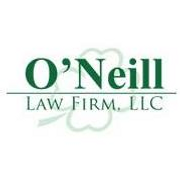
Excessive debt can overwhelm average hardworking individuals. No one can predict the future Fortunately, the law provides ways to manage and get rid of financial burdens through bankruptcy. Experienced bankruptcy attorneys often receive questions from prospective clients and the public about these proceedings. A few of their answers are listed below.
FAQ & Answers From a Bankruptcy Attorney
1. What Is Bankruptcy?
Bankruptcy is the federal government proceeding that allows people and corporations in debt to discharge or catch up on their payments. Options include filing in bankruptcy court under Chapter 7, Chapter 11, and Chapter 13 of the bankruptcy code, the law that governs the proceedings. Immediately upon filing, the court issues an automatic stay stopping all creditor actions, including foreclosures and garnishments.
2. What Happens Under Chapter 7 Bankruptcy?
 Under Chapter 7, liquidation, or straight bankruptcy, the bankruptcy trustee liquidates, or sells any available assets and uses the proceeds to pay creditors. The court discharges any remaining debts, meaning debtors do not have to pay them. Individuals can claim exemptions to protect certain pieces of property, including clothing and personal items. Many times these exemptions are enough to cover all assets of the debtor, resulting in no loss of property. For individual debtors, the process is completed in about four to six months.
Under Chapter 7, liquidation, or straight bankruptcy, the bankruptcy trustee liquidates, or sells any available assets and uses the proceeds to pay creditors. The court discharges any remaining debts, meaning debtors do not have to pay them. Individuals can claim exemptions to protect certain pieces of property, including clothing and personal items. Many times these exemptions are enough to cover all assets of the debtor, resulting in no loss of property. For individual debtors, the process is completed in about four to six months.
3. What Are Chapters 11 & 13?
Chapter 11, a reorganization procedure, applies to businesses and corporations, and Chapter 13 is a similar process for individuals. Debtors work with their bankruptcy attorneys to develop payment plans for the court to approve. Debtors’ plans under Chapter 13 last from three to five years. When the payment plans end, the court discharges the remaining debts.
4. Can Filing Bankruptcy Save My House?
Individuals who file Chapter 13 bankruptcy to stop or avoid foreclosure and catch up on their house payments. This option can save non exempt property, such as rental property and cars, and allows individuals to catch up on debts that cannot be discharged, such as child support and back taxes. In Chapter 7 funds can be freed up from discharge of other debts to keep house payments current.
At O’Neill Law Firm in La Crosse, WI, bankruptcy attorneys offer clients many debt relief options, including those through the bankruptcy courts. Get the help you need to escape the financial burdens weighing you down. Learn more about their practice areas, including criminal defense and family law, online now. Call (608) 519-3551 for a confidential consultation appointment.
About the Business
Have a question? Ask the experts!
Send your question

